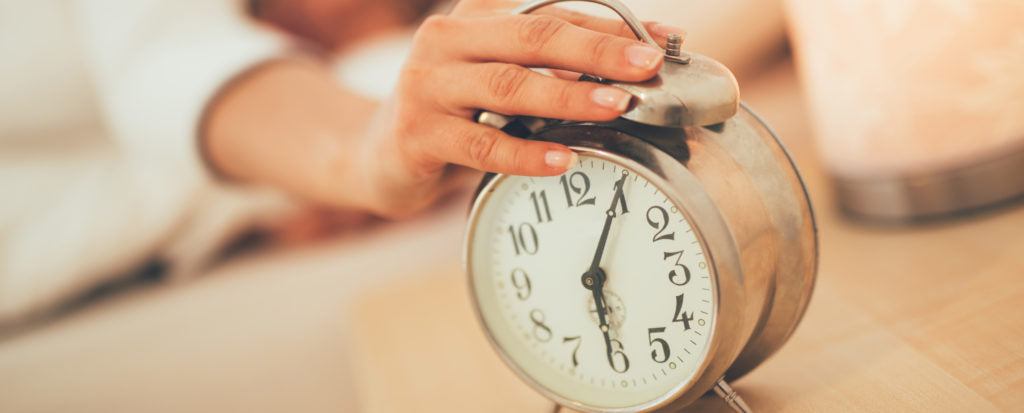A good morning for a better tomorrow

Do you know this? After you have pressed the snooze button on your alarm clock several times, you are not more rested, but you are in a real rush. So you quickly brush your teeth, get in the shower and get dressed. There's just enough time for a coffee, but you'll have to skip breakfast. If the day starts with stress and a hectic pace, this affects your mood and can be felt throughout the day.
To start the day relaxed, focused and in a good mood, it is worth changing your habits in the morning. This is because we are particularly productive in the first three hours after getting up thanks to the energy boost we get from sleep. This is an important time that we can make much better use of with a personal morning routine.
Hal Elrod, who presents a one-hour morning routine called S.A.V.E.R.S. in his book "The Miracle Morning", provides inspiration for this.
The morning routine according to Hal Elrod
S.A.V.E.R.S. stands for:Silence
We are least distracted by external influences in the morning, so this is the best time to find peace and quiet. We recommend starting this part of your morning routine immediately after showering and brushing your teeth, for example with meditation. Apps such as "Headspace" (available for a fee) make it easy to learn meditation.Affirmations
Affirmations, i.e. positive beliefs, help us to gain more energy, self-confidence and serenity. This makes it easier for us to achieve our goals and enrich our lives with more joy and ease.The following questions help to define positive beliefs and goals:
Example:
The goals can be short-term, medium-term and long-term, and are best formulated as personally as possible. To benefit from the affirmation, they should be spoken out loud every morning.
Visualization
The principle of attraction also applies to visualization. When we focus on certain goals, we also attract them. The image should be as precise and vivid as possible. If we stay with the example of the café, you can imagine, for example, putting the key in the café door lock in the morning, opening the door and looking at everything. Imagine how you feel when you do this.Exercise
Exercise in the morning gets us going, not just our bodies but also our minds. Depending on your preference, you can go for a jog or practise yoga, for example.Reading
Reading does not, of course, mean e-mails - what you read depends entirely on your interests. Perhaps a specialist article? Or would you prefer a non-fiction book? Anything that you think will broaden your horizons and inspire you is ideal.Scribing
When we write down our thoughts, they become more engraved in our brain. A diary is also suitable, either completely free or one in which we devote ourselves to the following questions every day: What am I grateful for? What nice things happened yesterday? What am I planning to do today?In any case, design your morning routine in a way that suits you best. In terms of length and focus. If you're a total couch potato, you can reduce your exercise to five minutes of gymnastics by the open window and take more time for meditation or writing. After all, it's your morning, so make the most of it. By the way: essential nutrients such as vitamin C and the vitamins B2, B3, B5, B6, B9 and B12 reduce tiredness and fatigue.
Book tip: "Miracle Morning: The hour that changes everything" by Hal Elrod, Irisiana Verlag Munich 2014



